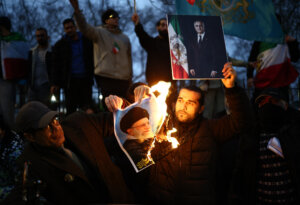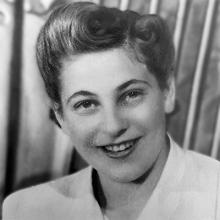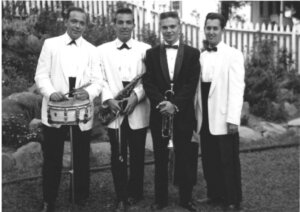Local News
BB Camp: A Legacy of Wilderness, Community, and Jewish Connection
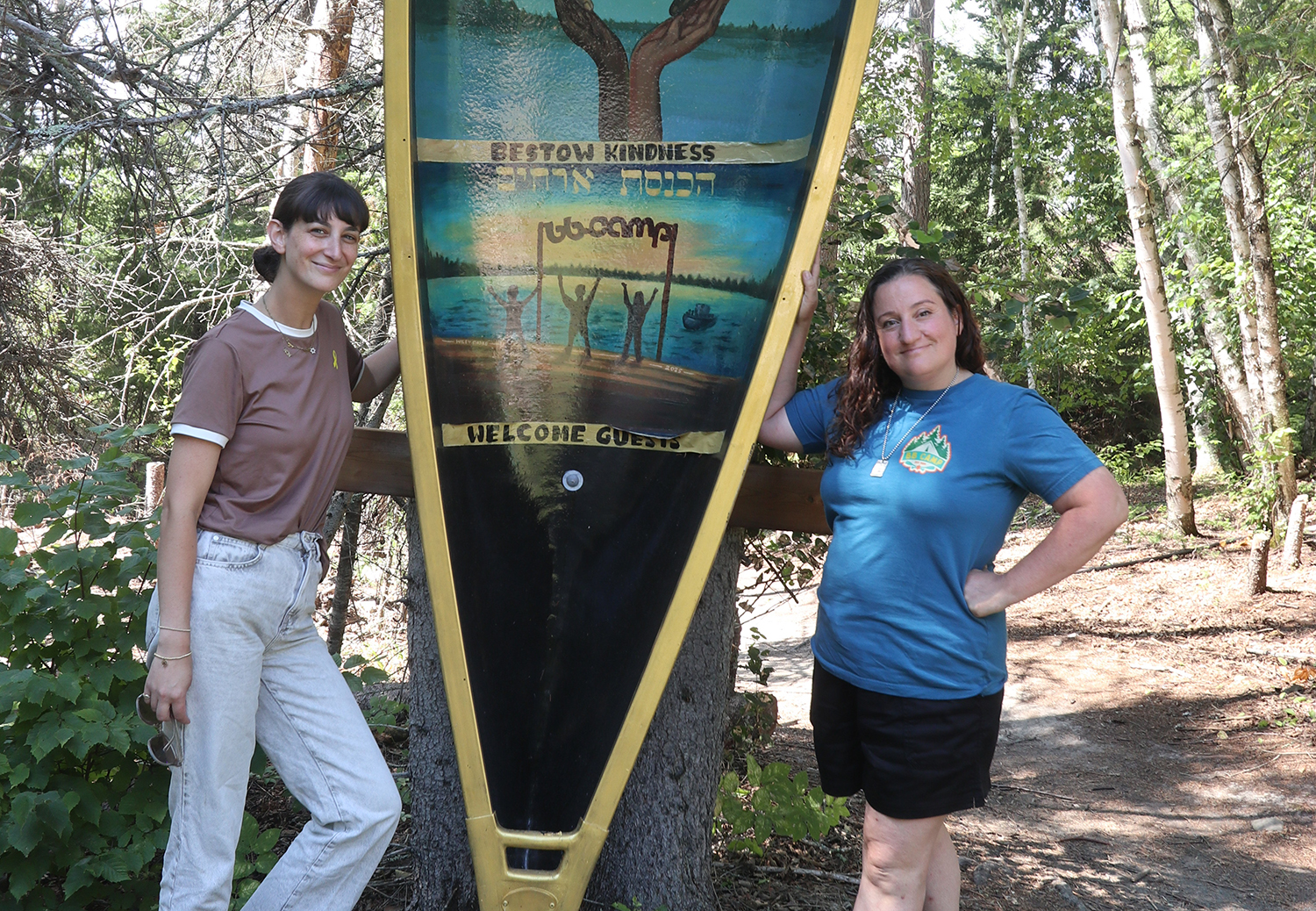
Introduction: Readers of this website may have read stories some months back about the huge controversy in which BB Camp on Town Island in Lake of the Woods had found itself. You can read a number of different stories on this website simply by searching for BB Camp.
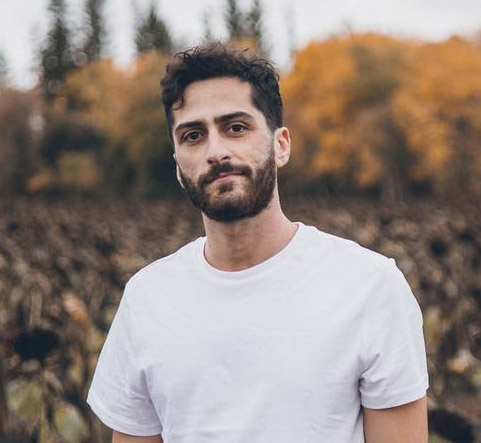
Those stories give a great deal of detail about what happened, beginning with a story posted on April 10 titled “BB Camp finds itself embroiled in controversy over camp co-director Jacob Brodovsky.”
Subsequently, we reported that the BB Camp board of directors had given a full vote of confidence to Brodovsky, only to find itself just a few days later ordered by the Jewish Federation of Winnipeg to reverse that decision and fire Brodovsky. (The Jewish Federation has consistently ignored requests from us to offer an explanation why it demanded the firing of Brodovsky.)
On April 27, however, we reported that the board of BB Camp had just appointed two new co-directors: Aliza Millo and Sarah Gould. You can read that story at “Well, that didn’t take long.” (We should note, however, as we did in that story posted on April 27, that Millo’s and Gould’s titles were “co-director,” not “co-executive director,” which were the titles held by their predecessors, Brodovsky and Lexie Yurman (who also happen to be married to each other). Although Jacob Brodovsky had been fired as camp co-executive director, Lexie Yurman happened to be on maternity leave at the time of Jacob’s firing. Whether she will be allowed to return as executive director next summer has not been announced by the board.
Recently, writer Jon van der Veen went out to BB Camp to see for himself how the camp had done this summer and to talk to both Millo and Gould.
Here is Jon’s report:
Nestled on Town Island in Lake of the Woods, BB Camp has been a cherished summer haven for generations of campers, counselors, and families. This year, BB welcomed back two dedicated staff members, Sarah Gould and Aliza Millo, to run the camp; their deep ties to the camp highlight its enduring magic and evolving traditions. In a heartfelt conversation, they shared their reasons for returning, the camp’s unique wilderness focus, and its vibrant Jewish programming that continues to foster community and growth.
A Homecoming Rooted in History:
Sarah’s connection to BB Camp spans decades. Starting as an eight-year-old camper, she progressed through the ranks to become a counselor, then to teaching canoeing and leading the camp’s renowned four-week AC (Advanced Camp) canoe trip. After years away—working at another camp, earning a graduate degree in anthropology, and raising a daughter—she returned this summer. “I’ve always been part of BB Camp,” Sarah said. “It held a special place in my heart, and when we heard there was an opportunity to come back, it just seemed like the right thing to do.”
Aliza, too, has deep roots at BB Camp. A former camper who completed the AC canoe trip, she later served as a counselor before moving to Toronto. Even during her time away, she stayed engaged through volunteer work and the camp’s alumni committee. “It feels like home,” Aliza shared. “It’s like a place where all Jewish people can come and feel completely safe and secure, like they belong.” Her personal milestone of meeting her husband at camp and marrying on the island underscores the lifelong bonds formed here.
The Wilderness Heart of BB Camp:
At the core of BB Camp’s identity is its wilderness program, a tradition that remains as strong today as it was decades ago. The pinnacle is the AC program, a four-week canoe trip where campers, aged 15, venture into the wilderness, covering up to 20 miles a day with multiple portages.
This year, five AC trips took approximately 50 campers into the remote reaches of Lake of the Woods, equipped with spot devices and satellite phones for safety—an update from Sarah’s era as a tripper when groups were entirely cut off from civilization.
The wilderness program starts young, with even the youngest campers, aged 11 to 12, embarking on overnight trips around the island’s conservation-protected campsites. As they grow, their adventures extend farther, culminating in the intensive AC trip. “The more skills they have, the more confident they feel,” Sarah noted, highlighting activities like knot-tying, fire-building, and canoeing that empower campers to embrace the outdoors. This skill-based learning is being revitalized this summer, with plans to bring back canoeing awards and wooden beads for achievements like sleeping under the stars—a tradition that resonates deeply with alumni.
A Vibrant Jewish Identity:
BB Camp’s commitment to Jewish culture is equally robust, thanks to the efforts of the “J-Crew,” a group of staff who have spearheaded a revival of Judaic programming. Aliza explained their grassroots initiative is inteded to amplify Jewish identity- something she says, was in already in motion before she and Sarah returned as camp directors.
A standout event is Israel Day, a camp-wide celebration that transforms the island into a vibrant tribute to Israeli culture. This year, campers “climbed Masada” at the ropes course, relaxed at a “Dead Sea spa” with oatmeal and cucumber slices, and enjoyed a “Tel Aviv beach party” with kayaking and canoe races. Falafel and Bissli snacks added authentic flavor, while decorations like Israeli flags and red thread bracelets created an immersive experience. “One kid said, ‘Israel Day is heaven,’” Aliza said – a testament to the program’s success. Aliza noted that the staff set up Israel Day at night, so that when the campers woke up it was a big surprise to see the camp transformed!
Beyond Israel Day, the camp weaves Jewish values into daily life, using Hebrew words like “chadar” for the dining hall. Shabbat programming offers flexibility, with counselors designing activities like book clubs or arts and crafts, ensuring every camper finds their place. “It’s about being intentional,” Aliza said, noting the camp’s efforts to foster a shared Jewish language and sense of belonging.
Aliza also informed me that BB camp had two Israeli staff members this year. Although not a new phenomenon, their continued incorporation into camp life provides a valuable cross-cultural exchange and helps enhance the Jewish identity.
Continuity and Change
Despite the passage of time, much of BB Camp feels unchanged. The swim docks, the energy of kids running down camp trails, and the closing tradition of the “burning B’s”—a raft with the camp’s initials set alight on the final night—evoke nostalgia for Sarah and Aliza. “The energy hasn’t changed,” Aliza said, reflecting on the familiar giggles and excitement that define camp life. Yet, modern touches like printed emails from parents and safety devices for wilderness trips reflect thoughtful evolution. However, BB Camp isn’t in a rush to adopt all the trappings of modern life, wary of ruining the wilderness experience. “We want them to experience the wilderness without distractions,” Sarah explained, emphasizing that the camp’s no-phone policy offers kids a rare chance to disconnect from a technology dominated world.
The camp’s generational continuity is striking. Sarah noted, saying that she would see the children of former counselors and campers, with families from Toronto, Vancouver, and beyond sending their kids to experience BB Camp’s magic. Kids like to find the names of their parents and other relatives on the canoe trip paddles – dating back to 1968, that line the dining hall walls. “There’s a real generational continuity here,” she said. “It’s a place that’s special in people’s hearts.”
This generational continuity is something Sarah experienced first-hand this summer, as she brought along her young daughter when she took the job at camp. “ She loves it,” Sarah remarked. “We live in Toronto now, but I wanted her to be part of the BB camp family.”
A Place of Growth and Connection:
With 117 campers and 28 leaders-in-training this session, BB Camp buzzes with activity. From the competitive Maccabi Games to canoe trips, the schedule is packed yet purposeful, with a balance between the arts and the outdoors.
The camp’s small cabins, ranging from seven to twelve campers, ensure personalized attention, with counselors, while staff-in-training fosters a supportive environment.
For Sarah and Aliza, BB Camp is more than a summer getaway—it’s a transformative space where kids grow through challenges, whether conquering a ropes course, paddling a canoe, or simply sleeping away from home. “Kids find their thing here,” Sarah said. “From that challenge comes growth.” The camp’s pristine wilderness – free from the distractions of modern life, amplifies this impact, offering a rare opportunity for decompression and self-discovery.
As Sarah and Aliza walked through the camp, pointing out the tripper track—a relic from the island’s days as a 1950s army base—and sharing stories of their own camp days, their passion was palpable. “There’s nowhere else like Lake of the Woods,” Sarah said, reflecting on the solitude and beauty of the AC trips. “It’s a true wilderness experience.”
After a successful grassroots campaign to save Towne Island from development in 2021, BB Camp now partners with the Nature Conservancy of Canada as stewards of Towne Island. Protecting and caring for the environment, its pristine forests and wildlife, is a key value instilled in camp life.
A Community United:
This year, BB Camp has seen an outpouring of support from the broader camp community, including partnerships with other Jewish camps like Camp Massad. “There’s no need for rivalry,” Aliza said, noting the collaborative spirit that strengthens Winnipeg’s Jewish camping scene. With only about 14,000 Jews in the city, the existence of two such nearby camps is a remarkable asset.
As each summer comes and goes, BB Camp remains a beacon of tradition, growth, and community. For Sarah, Aliza, and countless others, it’s a place where memories are made, skills are honed, and Jewish identity is celebrated—a true home away from home on the picturesque shores of Town Island.
Local News
Winnipeg Jewish Theatre breaks new ground with co-production with Rainbow Stage

By MYRON LOVE Winnipeg Jewish Theatre is breaking new ground with its first ever co-production with Rainbow Stage. The new partnership’s presentation of “Fiddler on the Roof” is scheduled to hit the stage at our city’s famed summer musical theatre venue in September 2026.
“We have collaborated with other theatre companies in joint productions before,” notes Dan Petrenko, the WJT’s artistic and managing director – citing previous partnerships with the Segal Centre for the Performing Arts in Montreal, the Harold Green Jewish Theatre in Toronto, Persephone Theatre in Saskatoon and Winnipeg’s own Dry Cold Productions. “Because of the times we’re living through, and particularly the growing antisemitism in our communities and across the country, I felt there is a need to tell a story that celebrates Jewish culture on the largest stage in the city – to reach as many people as possible.”
Last year, WJT approached Rainbow Stage with a proposal for the co-presentation of “Fiddler on the Roof.” Rainbow Stage management was really enthusiastic in their response, Petrenko reports.
“We are excited to be working with Winnipeg’s largest musical theatre company,” he notes. “Rainbow Stage has an audience of more than 10,000 people every season. Fiddler is a great, family-oriented story and, through our joint effort with Rainbow Stage, WJT will be able to reach out to new and younger audiences.”
“We are also working to welcome more diverse audiences from other communities, as well as newcomers – families who have moved here from Israel, Argentina and countries of the former Soviet Union.”
Helping Petrenko to achieve those goals are two relatively new and younger additions to WJT’s management team. Both Company Manager Etel Shevelev, and Head of Marketing Julia Kroft are in their 20s – as is Petrenko himself.
Kroft, who is also Gray Academy’s Associate Director of Advancement and Alumni Relations, needs little or no introduction to many readers. In addition to her work for Gray Academy and WJT, the daughter of David and Ellen Kroft has been building a second career as a singer and actor. Over the past few years, she has performed by herself or as part of a musical ensemble at Jewish community events, as well as in various professional theatre productions in the city.
Etel Shevelev is also engaged in a dual career. In addition to working full time at WJT, she is also a Fine Arts student (majoring in graphic design) at the University of Manitoba. Outside of school, she is an interdisciplinary visual artist (exhibiting her work and running workshops), so you can say the art world is no stranger to her.
(She will be partcipating in Limmud next month as a member of the Rimon Art Collective.)
Shevelev grew up in Kfar Saba (northeast of Tel Aviv). She reports that in Israel she was involved in theatre from a young age. “In 2019, I graduated from a youth theatre school, which I attended for 11 years.” In a sense, her work for WJT brings her full circle.
She arrived in Winnipeg just six years ago with her parents. “I was 19 at the time,” she says.
After just a year in Winnipeg, her family decided to relocate to Ottawa, while she chose to stay here. “I was already enrolled in university, had a long-term partner, and a job,” she explains. “I felt that I was putting down roots in Winnipeg.”
Etel expects to graduate by the end of the academic year, allowing her to focus on the arts professionally full-time.
In her role as company manager, Shevelev notes, she is responsible for communications with donors, contractors, and unions, as well as applying for various grants and funding opportunities.
In addition, her linguistic skills were put to use last spring for WJT’s production of “The Band’s Visit,” a story about an Egyptian band that was invited to perform at a cultural centre opening ceremony in the lively centre of Israel, but ended up in the wrong place – a tiny, communal town in southern Israel. Shevelev was called on to help some of the performers with the pronunciation of Hebrew words and with developing a Hebrew accent.
“I love working for WJT,” she enthuses. “Every day is different.”
Shevelev and Petrenko are also enthusiastic about WJT’s next production – coming up in April: “Ride: The Musical” debuted in London’s West End three years ago, and then went on to play at San Diego’s Old Globe theatre to rave reviews. The WJT production will be the Canadian premiere!
The play, Petrenko says, is based on the true story of Annie Londonderry, a young woman – originally from Latvia, who, in 1894, beat all odds and became the first woman to circle the world on a bicycle.
Petrenko is also happy to announce that the director and choreographer for the production will be Lisa Stevens – an Emmy Award nominee and Olivier Award winner. (The Olivier is presented annually by the Society of London Theatre to recognize excellence in professional London theatre).
“Lisa is in great demand across Canada, and the world really,” the WJT artistic director says. “I am so thrilled that we will be welcoming one of the greatest Jewish directors and choreographers of our time to Winnipeg this Spring.”
For more information about upcoming WJT shows, readers can visit wjt.ca, email the WJT office at info@wjt.ca or phone the box office at 204-477-7515.
Local News
Rising Canadian comedy star Rob Bebenek to headline JCFS’ second annual “Comedy for a Cause”

By MYRON LOVE Last year, faced with a federal government budget cut to its Older Adult Services programs, Jewish Child and Family Service launched a new fundraising initiative. “Comedy with a Cause” was held at Rumor’s Comedy club and featured veteran Canadian stand-up comic Dave Hemstad.
That evening was so successful that – by popular demand – JCFS is doing an encore. “We were blown away by the support from the community,” says Al Benarroch, JCFS’s president and CEO.
“This is really a great way to support JCFS by being together and having fun,” he says.
“Last year, JCFS was able to sell-out the 170 tickets it was allotted by Rumor’s,” adds Alexis Wenzowski, JCFS’s COO. “There were also general public attendees at the event last year. Participants enjoyed a fun evening, complete with a 50/50 draw and raffle. We were incredibly grateful for those who turned out, the donors for the raffle baskets, and of course, Rumor’s Comedy Club.
“Feedback was very positive about it being an initiative that encouraged people to have fun for a good cause: our Older Adult Services Team.”
This year’s “Comedy for a Cause” evening is scheduled for Wednesday, February 25. Wenzowski reports that this year’s featured performer, Rob Bebenek, first made a splash on the Canadian comedy scene at the 2018 Winnipeg Comedy festival. He has toured extensively throughout North America, appearing in theatres, clubs and festivals. He has also made several appearances on MTV as well as opening shows for more established comics, such as Gerry Dee and the late Bob Saget.
For the 2026 show, Wenzowski notes, Rumors’ is allotting JCFS 200 tickets. As with last year, there will also be some raffle baskets and a 50/50 draw.
“Our presenting sponsors for the evening,” she reports, “are the Vickar Automotive Group and Kay Four Properties Incorporated.”
The funds raised from this year’s comedy evening are being designated for the JCFS Settlement and Integration Services Department. “JCFS chose to do this because of our reduction in funding last year by the federal government to this department,” Wenzowski points out.
“Last year alone,” she reports, “our Settlement and Integration Services team settled 118 newcomer families – from places like Israel, Mexico, Brazil, and Argentina. Each year, our program supports even more newcomer families with things like case management, supportive counselling, employment coaching, workshops, programming for newcomer seniors, and more.”
“We hope to raise more than $15,000 through this event for our Settlement and Integration Program,” Al Benarroch adds. “The team does fantastic work, and we know that our newcomer Jewish families need the supports from JCFS. I want to thank our sponsors, Rumor’s Comedy Club, and attendees for supporting us.”
Tickets for the show cost $40 and are available to purchase by calling JCFS (204-477-7430) or by visiting here: https://www.zeffy.com/en-CA/ticketing/jcfs-comedy-for-a-cause. Sponsorships are still available.
Local News
Ninth Shabbat Unplugged highlight of busy year for Winnipeg Hillel

By MYRON LOVE Lindsay Kerr, Winnipeg’s Hillel director, is happy to report that this year’s ninth Shabbat UnPlugged, held on the weekend of January 9-11, attracted approximately 90 students from 11 different universities, including 20 students who were from out of town.
Shabbat UnPlugged was started in 2016 by (now-retired) Dr. Sheppy Coodin, who was a science teacher at Gray Academy, along with fellow Gray Academy teacher Avi Posen (who made aliyah in 2019) – building on the Shabbatons that Gray Academy had been organizing for the school’s high school students for many years.
The inaugural Shabbat UnPlugged was so successful that Coodin and Posen did it again in 2017 and took things one step further by combining their Shabbat UnPlugged with Hillel’s annual Shabbat Shabang Shabbaton that brings together Jewish university students from Winnipeg and other Jewish university students from Western Canada.
As in the past, this year’s Shabbat UnPlugged weekend was held at Lakeview’s Hecla Resort. “What we like about Hecla,” Kerr notes, “is that they let us bring in our own kosher food, it is out of the city and close to nature for those who want to enjoy the outdoors.”
The weekend retreat traditionally begins with a candle lighting, kiddush and a traditional Shabbat supper. Unlike previous Shabbats UnPlugged, Kerr points out, there were no outside featured speakers this year. All religious services and activities were led by students or national program partners.
The weekend was funded in part by grants from CJPAC and StandWithUs Canada, along with the primary gift from The Asper Foundation.
Kerr reports that the activities began with 18 of our local Jewish university students participating in a new student Shabbaton – inspired by Shabbat Unplugged, titled “Roots & Rising.”
In addition to Shabbat Unplugged, Hillel further partnered with Chabad for a Sukkot program in the fall, as well as with Shaarey Zedek Congregation and StandWithUs Canada for a Chanukah program. Hillell also featured a commemoration of October 7, an evening of laser tag and, in January, a Hillel-led afternoon of ice skating.
Coming up this month will be a visit to an Escape Room – and a traditional Shabbat dinner in March.
Kerr estimates that there are about 300 Jewish students at the University of Manitoba and 100 at the University of Winnipeg.
“Our goal is to attract more Jewish students to take part in our programs and connect with our community,” she comments.



